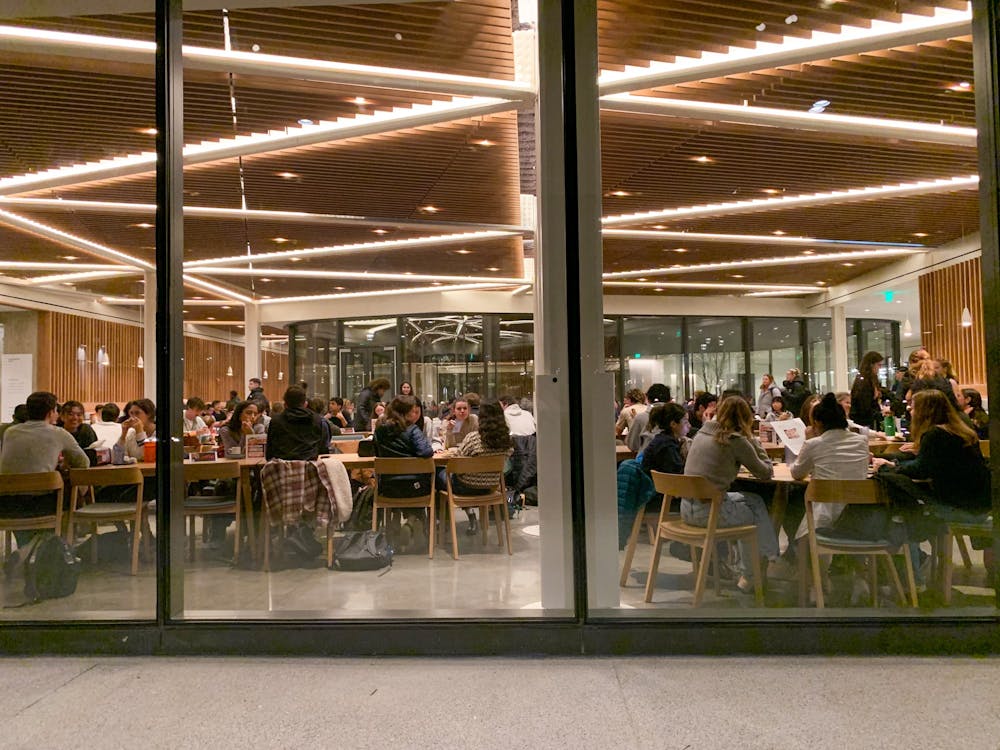The University’s proposed upperclass dining pilot brought campus-wide controversy and discussions when it was announced this fall. With the pilot set to launch on Monday, Feb. 27, The Daily Princetonian answers questions about what we know and don’t know about the upcoming program.
What is the dining pilot?
The dining pilot will give randomly selected junior and senior students five swipes per week which they can use to eat at eating clubs, co-ops, dining halls, retail dining locations, and late meal. Unused swipes will not roll over to the next week.
The pilot was worked on by a working group including eating club and co-op presidents, and campus life, dining, and finance administrators.
There was some controversy this fall when some eating club and co-op leaders claimed they had each been misled to believe that the other group had already agreed to the pilot.
Which students and groups will be involved?
Approximately 10 percent of the upper-class student body will be involved in the pilot program. Those selected to participate will get an email the week of Feb. 20, and the program will run through Apr. 30.
The University last held a pilot for a dining plan when 150 undergraduates tried out an early version of the Pay with Points program. For that pilot, participants filled out a survey and were then randomly selected. The Pay with Points pilot was primarily administered by Undergraduate Student Government. The University has not mentioned any application or survey before random selection for the upperclass dining pilot up to this point.

Dining halls, eating clubs, and co-ops will be available to swipe in for meals, as will campus cafes, like the Frist Gallery and Café Vivian, and concession stands at athletic games.
Students will not be charged to participate in the program. According to the dining pilot FAQ, the University will reimburse co-ops and eating clubs for guest meals.
How will the program be implemented?
Each venue will decide its own space capacity, meaning that spots per meal may be limited at eating clubs and co-ops. Eating clubs and co-ops may also have members-only nights, but according to the dining pilot FAQ, University spaces, like dining halls, should have no capacity limits.

At eating clubs, meal swipes can only be used if students are accompanied by a member of that club. Protocol for swiping into co-ops has not been announced yet.
No-communication and no-contact orders will be honored under the pilot program, meaning that students who have had these filed against them may have limits on where they can use their swipes. No-communication and mutual no-contact orders “prevent parties from engaging in direct or indirect communication with one another” and typically last 12 or 3 months, respectively.
What’s the reason for the pilot?
The stated goal of the dining pilot is to “achieve fluidity and flexibility in our dining system” in order to develop “community connectedness and shared experience.”
This may be the latest step in a years-long push from the University to make dining and social experiences less segmented by community.
A task force in 2018 made twenty recommendations for how to make the dining and social experiences more inclusive. This included working with clubs to decrease costs and hosting on-campus events with alcohol for of-age students outside the eating clubs. In 2010, an earlier task force encouraged the University to increase financial support for students in eating clubs to cover social fees and sophomore charges, as well as to choose club membership through a ranked choice computer program. Since then, some of these recommendations have been implemented.
What pushback has it gotten?
On Oct. 4, a group of student leaders, including several members of the working group which had designed the pilot, proposed and signed an alternative plan. The five-point plan suggests expanding the University’s “Two Extra Meals” program to also include late meal and meal exchange, extending the dining points program to upperclassmen, opening the eating clubs specifically for upperclassmen students at certain times during the semester, calling on the Interclub Council (ICC) to “open a campus-wide conversation around exclusionary aspects of the eating club system,” and asking the Undergraduate Student Government (USG) to open “supplemental social spaces” on campus.
On Oct. 6, the USG held a town hall meeting to collect student feedback on the program, as it was understood at that time. At the time, a USG survey suggested that 74 percent of respondents held “mostly negative” views of the pilot, while 15 percent held “mostly positive” views.
How does its success get decided?
After the pilot program has ended, the working group will look at “usage data, surveys and other qualitative data” to determine its success. If changes are made to campus dining, this will happen, at the earliest, in Fall 2024. If implemented in the future, the financial impact of the program will be announced later.
Laura Robertson is a Staff News Writer for the ‘Prince.’
Please send any corrections requests to corrections[at]dailyprincetonian.com.
Correction: This piece has been updated with additional context about the Pay with Points pilot.








